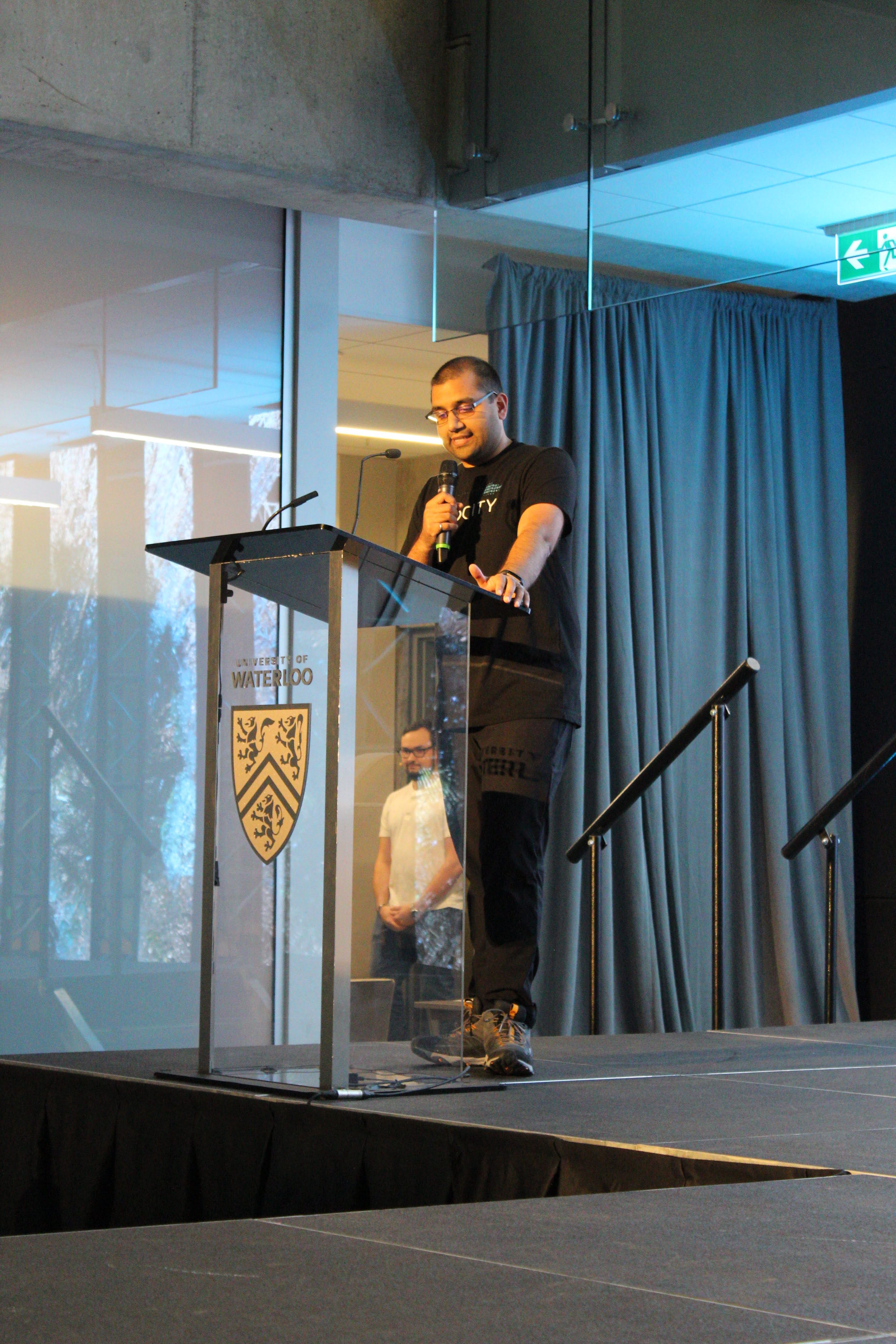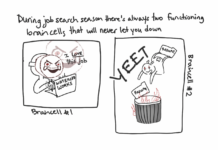
Innovation is one of UW’s fundamental priniciples. From cybersecurity to gender equality, the UW community aims to be a trailblazer in as many fields as possible.
The Waterloo Innovation Summit saw experts and entrepreneurs from many aspects of healthcare gather in the E7 atrium on Oct. 1 to share their expertise and opinions on the future of healthcare.
The event was hosted by Nora Young from CBC News and opened by Charmaine Dean, Vice President of Research and International at UW.
The event was then followed by a conversation with Donna Strickland on her research and the nature of innovation.
Along with speakers, the event included panels on relevant topics in healthcare, segments that highlighted emerging businesses, and a special pitch competition featuring four UW Velocity startups focused on healthcare.
Other speakers included Ron Li, CEO and founder of Novoheart Inc., a company that creates customized miniature organs.
These organs, which can be created from a few drops of blood, can help predict the effects that certain treatments will have on a person.
Panels and keynotes were interspersed with Pulse Checks— short, five-minute presentations by entrepreneurs still in the early stages of their businesses.
These businesses presented innovative solutions to complex problems.
Some solutions were technical —Hendrik Walther, CEO and co-founder of Ocu-Blink, presented their accurate eye model for testing eye reactions to drugs and environmental conditions, while some were tackling more age-old problems, such as Moazam Khan, CEO of Curiato Inc., where they are making bedsheets that monitor and minimize bedsores.
On a different angle, Alexander Wong, the Canada Research Chair in Artificial Intelligence & Medical Imaging, talked to Jodie Wallis from Accenture about the influence of AI on the future of healthcare.
Michael Skupien, CEO and founder of Bloomry, also recognized the importance of AI for the future of mental health.
Bloomry is a company developing an AI tool that will use a database of human behaviours to accurately and quickly diagnose mental health conditions in children.
“Our AI will quickly surpass both the diagnostic accuracy, and more importantly, the level of understanding of a human specialist today. And we will partner with the existing research community to validate our models,” Skupien said.
“In the future, Bloomry will provide the infrastructure that’s desperately needed to redesign and scale the next generation of our mental health industry. And while our goals are ambitious, we can execute on this vision.”
The summit also featured panels on current topics, including data-driven healthcare, connecting mathematics and health, building better plans after diagnosis, and an insider look at going from a start-up to a scale up.
Finally, the summit ended with a conversation between Lili Liu, dean of Applied Health Sciences and Christine Elliott, Minister of Health in the Government of Ontario.
Elliott stressed the importance of moving Ontario forward into the 21st century.
“My role is to make sure that patients and Ontario have excellent quality healthcare. And that means we need to move it into the 21st century,” she said.
“I think there’s a key role to be played by Waterloo Region as we look forward to the future… one of my goals is to get rid of taxes and healthcare, I don’t think we should need them anymore with other ways of other technologies that are available in ways that we communicate with each other.”
“One of the things we’re trying to do in government is to make sure that we don’t just look at healthcare and innovation… as just being a user of tax dollars but as a significant job creator. I think we have tremendous potential here in Ontario to to create jobs and provide excellent quality health care to the people of Ontario,” Elliot said.





























